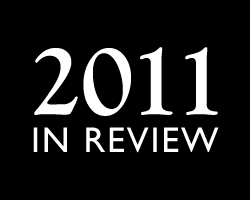Samuel V. Adams is a PhD candidate at the Institute for Theology, Imagination, and the Arts at St Andrews, working on contemporary apocalyptic theology and the doctrine of creation. Married with three kids, Sam is ordained in the Mennonite Church USA, and most recently called Bend, Oregon home.
* * *
Apocalyptic theology is theology in an unsettling mode. Like trying to nap while waiting for the phone to ring, the apocalyptic theological imagination cannot rest without expecting disruption. This is the apocalyptic sense of Dietrich Bonhoeffer’s claim that, “Christian revelation cannot be understood when it is perceived as something existing, in the sense of something available at one’s convenience.”[1] Revelation comes from outside and cannot be possessed; for the apocalyptic imagination the claim to possess truth “as something existing” is always subject to an act from outside that interrupts and unsettles that which has been made “convenient.”
One way to begin thinking of the apocalyptic imagination is to think of the images conjured by the uses of “apocalypse” in popular discourse, Christian or otherwise. Cataclysmic scenes of barren post-nuclear wastelands, charts of fantastical end-time speculation, video of people jumping from the World Trade Center, or photographs of a Japanese coastline devastated by a tsunami; all these invoke the term “apocalyptic.” Such images awaken us to the real contingency that characterizes both our own existence and the structures of security that we suppose keep us from similar catastrophes. Some of us, consciously or subconsciously, long for such disruption to free us from mundane existence. This is perhaps why post-apocalyptic films and even the book of Revelation lure so many with a promise of that which, in a freeing way, comes suddenly as something new (even with wandering bands of cannibals, smoke monsters, and beasts with seven heads…).
Apocalyptic as a genre—literary or cinematic—follows from the apocalyptic imagination with its focus on a disruptive or disclosive cataclysm. Whether a nuclear or ecological disaster, or the unsealing of a scroll, something happens to our world that disrupts its course forever. Most of the time, and this is especially true of post-apocalyptic cinema, the cataclysmic event has a ghostly presence, being rooted in a past occurrence, but haunting the present landscape in a very real and tangible sense (think, Mad Max, The Road, and The Book of Eli). But this can be the ghost of a future event as well (think, 2012).
The linguistic association of apocalypse with cataclysm suggests that the apocalyptic trope deploys its power through the imaginative evocation of a particular event. For apocalyptic theology, this is exactly right. At the heart of the Christian apocalyptic imagination lies the event, the apocalypse of Jesus Christ. Truth, in this Christian apocalyptic sense, “is evental….It is neither structural, nor axiomatic, nor legal.”[2] There is something new, something unprecedented that is added to existence and knowledge in the event that makes its singularity apocalyptic, making it able to disrupt and unsettle our convenient possession of truth.
There is more to an apocalyptic theology than can be contained by propositions or truth claims, which is why it makes sense, and is even necessary, to speak of the apocalyptic imagination. It is the imagination that allows us to be subject to a space from which comes an in-breaking. It is the imagination that permits the present to be haunted by the event. It is the imagination that preserves space, that even opens up space, for the present to be invaded by the truth of the event.
But now the Christian message comes: entirely from outside of the world of sin God himself came in Jesus Christ, he breaks as the holy Ghost into the circle of man, not as a new idea, a new value by virtue of which man could save himself, but in concreteness as judgment and forgiveness of sin, as the promise of eschatological salvation….The whole existence of man in his egocentric world has to be shaken (erschüttert) before man can see God as really outside himself.[3]
The apocalyptic imagination is a way of seeing the world, but it is a world-view that is, at the same time, not a world-view. Because the apocalyptic event does not come from this world but disrupts the world, because it comes from outside, and shakes us with its critique of the way the world sees, the apocalyptic imagination is always unsettled and unsettling, haunted, as it were, by the event of the apocalypse of Jesus Christ.
[1] Dietrich Bonhoeffer, Act and Being (Minneapolis: Fortress Press, 1996), 107.
[2] Alain Badiou, Saint Paul: The Foundation of Universalism, trans. by Ray Brassier (Stanford, CA: Stanford University Press, 2003), 14.
[3] Bonhoeffer, Barcelona, Berlin, New York: 1928-1931, vol. 10 (Minneapolis, Fortress Press, 2008), 473.






Do you think that one of the reasons the “Left Behind” series falls so flat is because it’s almost completely lacking in “apocalyptic imagination”? For example, the Bonhoeffer assertions the authors of the series would have done better to include a band of wandering cannibals or an enraged motorcycle-driving renegade?
Tamara, I am not really familiar with the “Left Behind” series other than having read the first several chapters of the first volume. You may have to clarify your question a bit more…
Sam, thanks for your reply. In hindsight I think my question was pretty much rhetorical. The context in which I serve is unfortunately inundated in the Christian sub-culture that promotes only a stunted, sanitized imagination. I have not read the “Left Behind” series either, but it’s what came to my mind as soon as I saw the title of your post. Because I’d prefer to be able to call my community up to something new than only critique its current state, I was encouraged by your post and felt that your term “apocalyptic imagination” would help me do that (gently and over time, of course).
Thank you!